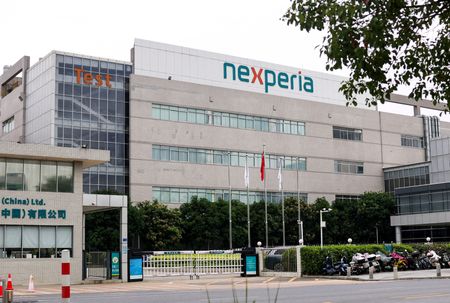By Philip Blenkinsop and Helen Reid
BRUSSELS (Reuters) -European finance ministers have agreed to bring forward to next year customs duties on low-value parcels to crack down on cheap Chinese e-commerce imports from online platforms like Shein and Temu.
Here are details of Europe’s concerns around cheap e-commerce imports, and the actions the European Union is taking.
WHAT IS THE PROBLEM?
The EU has a “de minimis” customs duty exemption for e-commerce parcels arriving in the bloc valued at less than 150 euros ($174).
Online platforms like Shein, Temu, AliExpress and Amazon Haul send clothes, accessories and gadgets from Chinese factories directly to shoppers at rock-bottom prices thanks to the customs waiver.
The number of low-value e-commerce packages arriving in the bloc doubled last year to 4.6 billion. More than 90% of them are from China, according to the Commission.
The EU executive estimates some 65% of small parcels entering the EU are undervalued to avoid customs duties.
It also sees risks of harm to consumers from non-compliant products, of environmental damage from shipping products with a short lifespan, and of damage to EU industry, notably retailers, from the import surge.
The U.S. scrapped its own “de minimis” policy that allowed duty-free entry to parcels worth less than $800, leading to concerns that cheap Chinese imports would divert more to Europe.
WHAT DOES THE EU PLAN?
The EU plans an overhaul of its customs system with the creation of an EU Customs Authority and an EU Customs Data Hub to replace IT infrastructure in EU members, saving them up to 2 billion euros a year, according to the Commission, and allowing greater coordination.
The EU is a customs union, meaning there is a common tariff on imports from non-member countries, and no tariffs on trade between EU countries. But each country has its own customs agency, and the bloc currently has 189 different customs IT systems, which is why the data hub is needed, said Dutch lawmaker Dirk Gotink, who oversees the reforms for the European Parliament.
The data hub will have to work with European technology firms, given the sensitivity of the information.
“The data is basically an MRI scan of the European economy and of trade flows; it is extremely sensitive and access to this data must be very strictly regulated,” Gotink told Reuters in an interview.
The rollout giving e-commerce companies access to the data hub is only scheduled for 2028, the date when the current 150 euro de minimis exemption is due to be abolished. For many, that is too slow.
SHORT-TERM FIXES
The bloc wants to introduce a “simplified temporary customs fee” on low-value e-commerce packages, possibly in November 2026. This single percentage-based duty on all packages is set to be decided by finance ministers at a December 12 meeting.
The Commission has also proposed a 2 euro handling fee for low-value e-commerce packages delivered directly to consumers or 50 cents for parcels handled by warehouses. Online retailers or importers would be liable, and this would be in addition to the temporary customs fee.
The handling fee is likely to be introduced in November 2026, or earlier if an IT solution can be found to support its implementation.
COUNTRIES JOSTLE FOR CUSTOMS AGENCY
Several countries including France, the Netherlands, Poland, and Portugal are bidding to host the new EU customs authority ahead of a November 27 deadline.
France has put forward the northern city of Lille, near the border with Belgium, as a host city, while Poland is arguing for Warsaw, already the headquarters of European border and coast guard agency Frontex. Portugal has proposed Porto.
($1 = 0.8632 euros)
(Reporting by Philip Blenkinsop and Helen Reid. Editing by Mark Potter)










